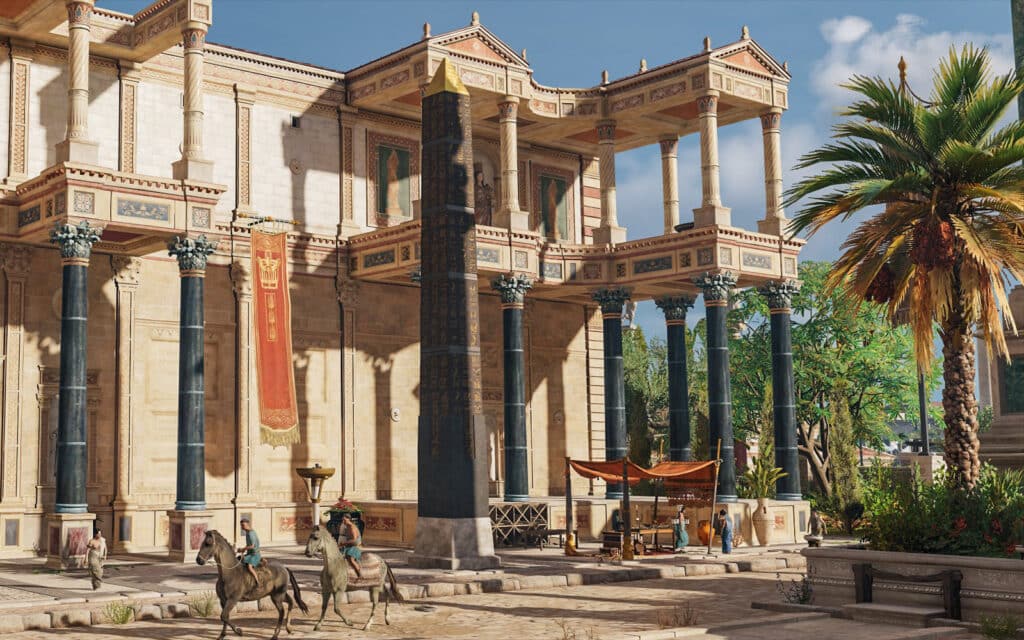

Have you ever wondered why libraries are organized the way they are, or why poets sometimes favor short, punchy verses over long epics? You might be surprised to learn that a figure from the distant 3rd century BC, a Greek scholar and poet named Callimachus, had a significant interest (and talent) in both.
He’s not exactly as famous as Homer or Plato are these days. But his work in Hellenistic Alexandria quietly shaped Western literature and how we’ve thought about organizing knowledge for millennia. Callimachus, therefore, managed to become a real forger of the future of thought.
Let’s head back to Hellenistic Alexandria under the Ptolemies. This wasn’t just any city; it was the city—a buzzing hub where ambitious Greek settlers met Egyptian history, all coming smoothly together by the successors to Alexander the Great. Imagine the energy! Here, drawn by the incredible and legendary Great Library (think the ultimate ancient think-tank and the world’s archive rolled into one), Callimachus of Cyrene worked hard to make his mark. People often picture him as the head librarian, but the real story behind this title is probably more complicated.
Callimachus was a leading figure in the Alexandrian intelligentsia and a key scholar whose efforts were central to creating the Library of Alexandria as we know it today.
Forget dusty scrolls in quiet corners. This was a place of immense intellectual buzz, intense debate, and discovery. It was a world away from ancient battlefields but was critical in shaping human history and culture.

So, imagine being handed a job that makes today’s big data projects look like a toddler’s task. Callimachus was tasked with creating the Pinakes, essentially the definitive, critical guide to all known Greek literature piled high in the world’s greatest library.
These “Tablets,” as the name translates from Greek, were more than simple lists. They were a proper scholarly bibliography, organizing authors and their works, adding biographical notes, and even listing the first lines so you knew you had the right scroll when you wanted to find a particular text.
Unfortunately, the Pinakes is lost, surviving only in fragments quoted by later writers. However, its creation marked the beginning of library science and literary history as we know them in the modern era. Consider this: before Callimachus, finding anything specific in that vast sea of papyrus must have been completely chaotic.
With his innovative ideas, Callimachus brought order by creating a map of Greek literature that scholars relied on for centuries. You can almost picture him, perhaps letting out a weary sigh as another load of scrolls arrived, before diving back into his monumental task—a job to which librarians and database wizards still owe a huge debt today.
Callimachus wasn’t just a master of organization, he was also a highly skilled poet with radical ideas for his time. While others were captivated by long, rolling verses of Homeric epics, Callimachus had a different perspective on poetry and epics. He famously stated, “Mega biblion, mega kakon,” which translates from Greek to “A big book is a big pain.” He wasn’t interested in massive, sprawling stories; instead, he championed refined poetry that was learned, packed with detail, and often short—long enough for someone to remember and admire.
His own work gives us a good idea of what he meant. Pieces like the Aetia (which explored the origins of obscure myths and customs), his finely crafted Hymns, and his clever, sharp Epigrams were dense with allusions, designed for an educated reader who appreciated polished quality over sheer size.

One might say this was simply a personal taste, but that is not the case. It was a whole literary philosophical approach that shook things up then. Later Roman poets, big names like Catullus and Ovid, looked back at Callimachus as a master, borrowing his style and focus on perfectly formed, often smaller, poems. He showed the ancient world that literary power could sparkle in small, intricate gems, not just be hewn from giant boulders.
Is that preference for concise, polished, information-dense writing familiar? In our age of quick takes and short attention spans, getting straight to the point has massive appeal—perhaps we’re more like Callimachus than we realize.
His struggle to organize the overwhelming amount of information in the Great Library probably holds a few lessons for our interconnected world, where people are overwhelmed by the sheer amount of available information—and misinformation.
Ultimately, Callimachus was a crucial figure of the Hellenistic world who balanced his work exceptionally well between the careful scholar who mapped out the literary past and the innovative poet who pointed towards its future.
